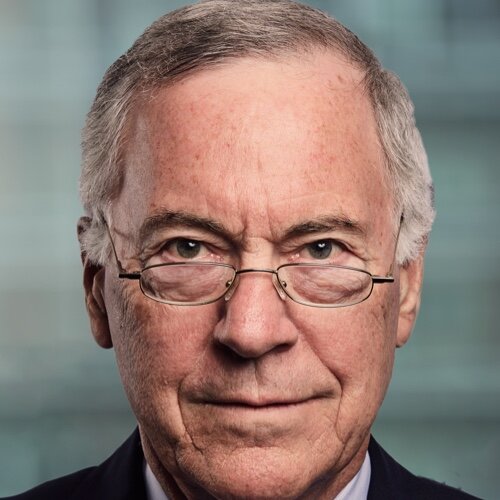“Bulgaria has had a history of low deficit, low debt to GDP. So that part of the system has worked very well. We can say that the monetary and fiscal situation has worked well since July 1997, when we installed the currency board in Bulgaria. So, it’s a big success. Now, the failure side was obvious to me when I was an advisor to President Stoyanov in 1997. And that is corruption. Corruption has never been done away with and that gets into the area of government effectiveness.
Look, the second failure is the effectiveness of government. And it is related to corruption. They are kind of intertwined. But the government effectiveness ratings by the World Bank are very poor in Bulgaria. Not only in absolute terms, but relative to everybody else in the region. And, one way you can see this failure of government effectiveness is just to think about COVID, and how the government handled COVID. It was a complete disaster in Bulgaria.
So, that would be just one indicator of the ineffectiveness of the government.
The third thing is the fact that Bulgaria hasn’t put in what I recommended a long time ago and that is something called: a fiscal debt brake.
Like the Swiss debt brake or a German debt brake. There is a constitutional rule that governs the way the fiscal affairs have to be managed. The budget has be balanced and government expenditures in Switzerland cannot increase any more rapidly than the rate of growth in the economy. By the way, this was passed in 2001 – 85% of the Swiss voted. They had a referendum.
They had direct democracy. They had no representatives in direct democracy. By passing a constitutional amendment, they hold a referendum in Switzerland on all major issues. In 2001, they introduced the famous Swiss debt brake. And I think that in combination with the currency board, that would be great for Bulgaria.”
Prof. Steve Hanke continues: “Now, the other overarching thing about the failure is that the Bulgarian political class really takes its orders from Brussels and Washington. So, there really is no independent political thought and no independent movement! By the way, when we introduced the currency board in 1997, Stoyanov was the president, Kostov was the prime minister. It was Bulgarian. They weren’t orders from Washington. It wasn’t an order from Brussels because of course you weren’t even in the EU then.
So, that’s my summary of successes and failures!”
These are the main appeals of the father of the Bulgarian currency board, which we have been in for a quarter of a century. Hanke is also the third most influential economist on Twitter with over 700,000 followers according to Focus Economics Barcelona.
In an exclusive interview with the Bulgarian journalist Martin Karbovski, the expert explained the economic picture in the world and in our country.
Prof. Steve Hanke continues to follow the processes in Bulgaria and seems to be more familiar than many native politicians and financiers. The professor revealed which Bulgarian owns the most land. And even more surprisingly, it turned out that Professor Hanke is ready to become the Minister of Finance in our country, in order to get us out of the quagmire. See more in the video:

